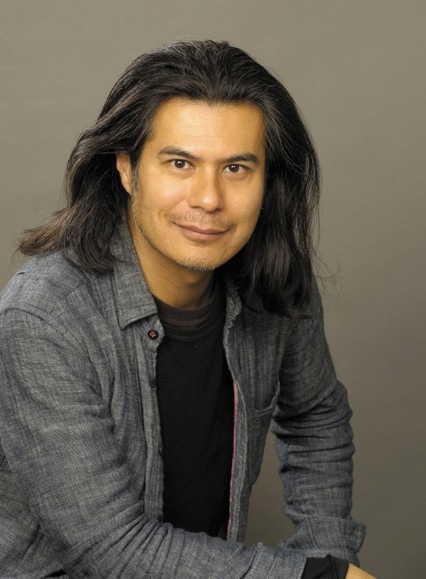 |
| photo: Sports Illustrated |
Karl Taro Greenfeld is the author of eight books that have been translated into a dozen languages. A long-time writer and editor for the Nation, Time and Sports Illustrated, he has also written for Harper's, the Atlantic, the Paris Review and for Best American Short Stories and O. Henry Prize Stories. As a journalist, he has traveled widely and turned to fiction only in his early 40s. He lives in Pacific Palisades, Calif., with his wife and daughters. The Palisades is the setting for his new novel, The Subprimes (Harper, May 12, 2015), about a near future in which extreme wealth inequality has destroyed the fabric of American society. It's a comedy.
On your nightstand now:
Billy Idol's Dancing with Myself, Edith Pearlman's Binocular Vision and Infamy: The Shocking Story of the Japanese-American Internment in World War II by Richard Reeves.
Favorite book when you were a child:
The book I kept on rereading was Catch-22, though that was in eighth grade. As a true child, I loved I Am Third, Chicago Bears running back Gale Sayer's autobiography. It has the chapter about his relationship with Brian Piccolo, that would become the movie Brian's Song. I really loved one chapter about when Gale Sayers was in high school and didn't have very much money, but there was a local hamburger restaurant, Pookies, that gave a coupon for a free hamburger every time a football player scored a touchdown. Sayers scored like seven touchdowns a game, so he got to eat seven hamburgers. I really enjoyed the simplicity of that arrangement and how if he was hungry, he just had to score more touchdowns.
It's funny, but yesterday I was thinking about this book I really loved in third grade called American During Four Wars. It was an illustrated children's book about the Revolutionary War, the Civil War, World War I and World War II. I just Googled it and it has one Goodreads rating, five stars, but I may have given it that, and it's ranked 4,287,053 on Amazon, which is probably higher than some of my books.
Book you've faked reading:
I was supposed to read The Tale of Genji by Murasaki Shikibu my senior year of college, and the book seemed like it was several thousand pages long. I may not have read it, but I wrote a long term paper about it. And I carried it around campus for about four months.
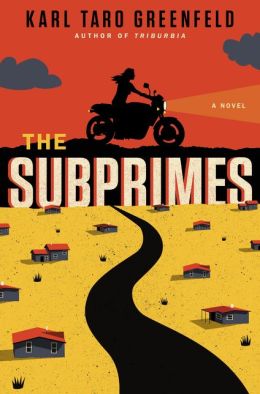 Book you're an evangelist for:
Book you're an evangelist for:
A Hollywood Education by David Freeman and Opium Fiend by Steven Martin.
Lately I've been talking up Preparation for the Next Life by Atticus Lish. It is a beautiful and powerful book that reminds me that people are still writing books that are wonderful, and how far short of that mark I fall.
Book you've bought for the cover:
I can't think of one. I can remember a book cover from my childhood of an illustration of a beautiful woman in a flowing gown standing on a precipice. There is vertical rock cliff face above her, below her and all around her. It seemed impossible for her to get into that position, yet there she was. It must have been a romance novel of some kind, and I studied it intensely, because the inescapability of her predicament terrified me. Despite my fascination with the cover, it never occurred to me to read the book.
Book that changed your life:
I think Genealogy of Morals by Friedrich Nietzsche. He concocted a theory of the history of religion and morality based on nothing but pure speculation, and wrote it as if it was the most obvious, observable phenomenon. There's a reason Nietzsche is the favorite philosopher of high school stoners, and that's because he goes on these mind blowing riffs and you are working so hard just to understand what he is saying, that it never occurs to you that he is pulling this material out of his a**. But it inspired me by convincing me that there is no higher virtue in life than defining oneself through art. I don't believe that any more, but for a few important years, college primarily, it formed the basis of my desire to become a writer. Now, I don't attach any imperative to any value system one might have. You can live for money, love, power, art, sex, drugs, collectible vinyl, whatever. I feel like you just make your choice, and you can change it. But when I was younger, it was important that there was one true way and that I knew what it was.
Favorite line from a book:
"The young man walks by himself, fast but not fast enough, far but not far enough (faces slide out of sight, talk trails into tattered scraps, footsteps tap fainter in alleys); he must catch the last subway, the streetcar, the bus, run up the gangplanks of all the steamboats, register at all the hotels, work in the cities, answer the want ads, learn the trades, take up the jobs, live in all the boardinghouses, sleep in all the beds. One bed is not enough, one job is not enough, one life is not enough. At night, head swimming with wants, he walks by himself alone." --John Dos Passos, The 42nd Parallel
Which character you most relate to:
Botchan from Natsume Soseki's book of that name.
Book you most want to read again for the first time:
The Lord of the Rings.
Book that most influenced your new book:
I was consciously trying to update The Grapes of Wrath, knowing full well I couldn't write a book as beautiful, but I wanted to explore those same themes of fairness, justice and inequality, issues that pose as great a challenge now as they did in Steinbeck's day. Also, I loved how he wrote a political novel that was entertaining, that didn't slow down the reader to lay in the ideas. That was my goal as well.
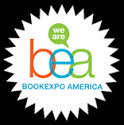 At the Celebration of Bookselling yesterday, seven ABA presidents and ABA CEO Oren Teicher paid tribute to former ABA president and ABA CEO Avin Domnitz, who was also owner of Dickens Books and co-owner of Harry W. Schwartz Bookshops in Milwaukee.
At the Celebration of Bookselling yesterday, seven ABA presidents and ABA CEO Oren Teicher paid tribute to former ABA president and ABA CEO Avin Domnitz, who was also owner of Dickens Books and co-owner of Harry W. Schwartz Bookshops in Milwaukee. 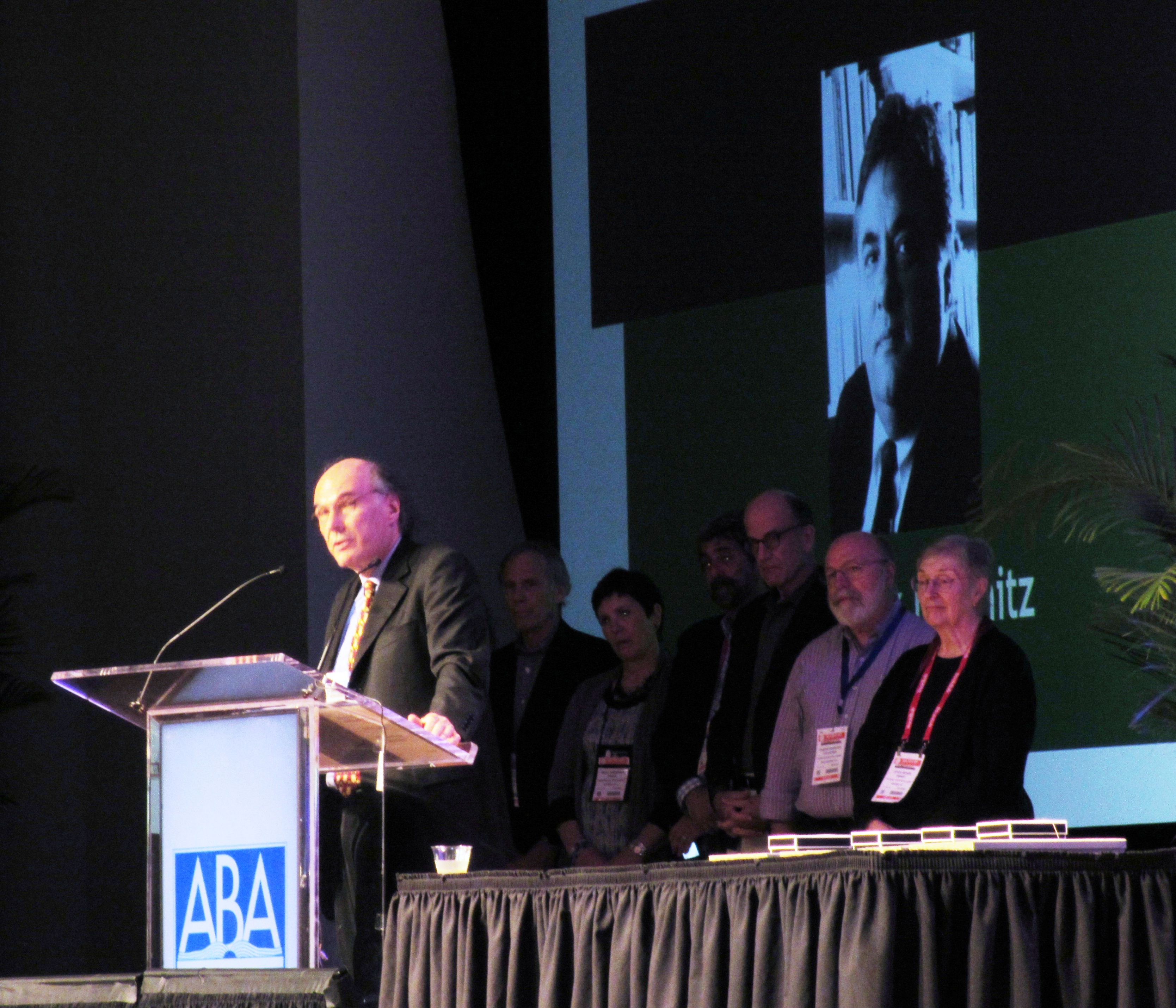










Patrick_McMullan.jpg)
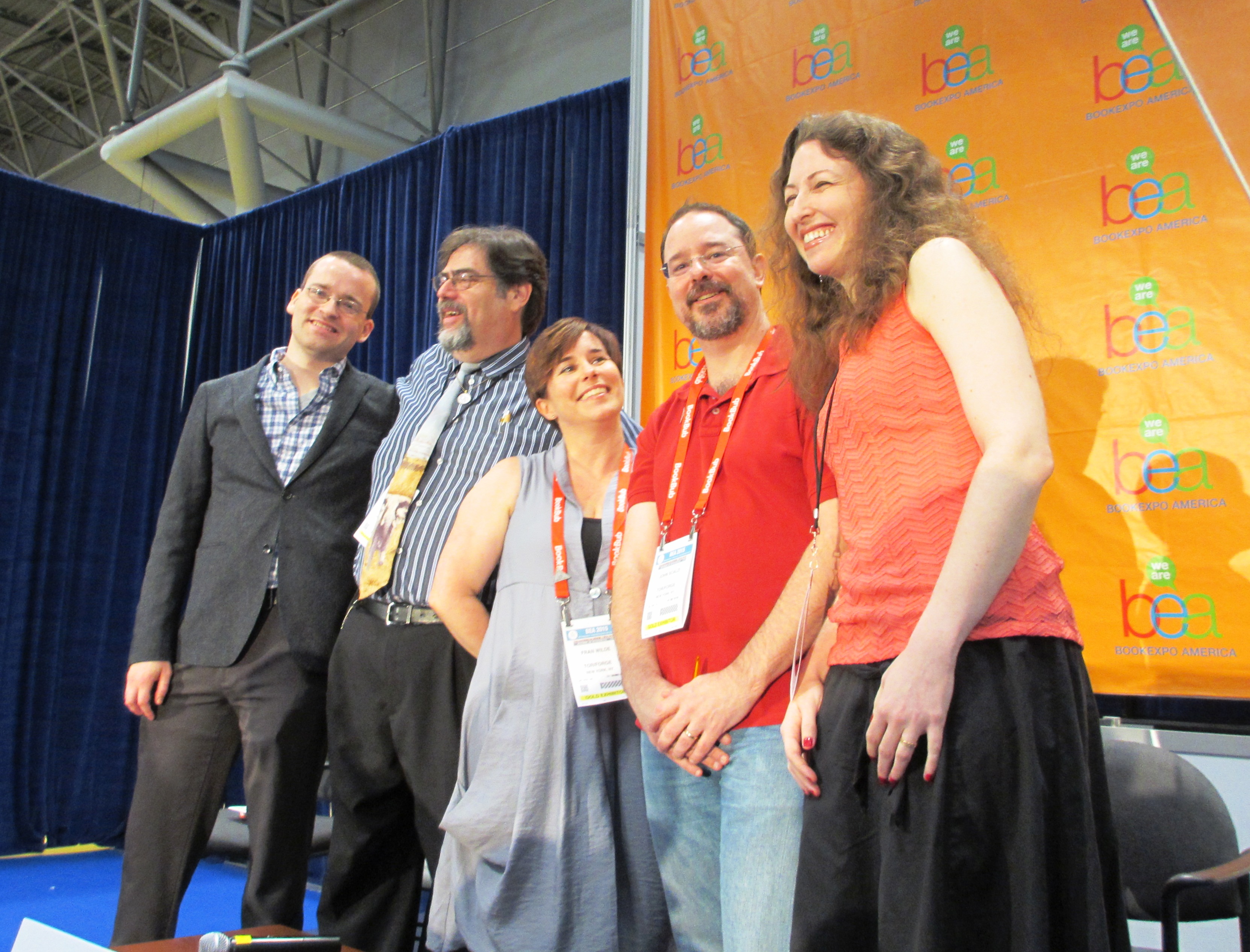
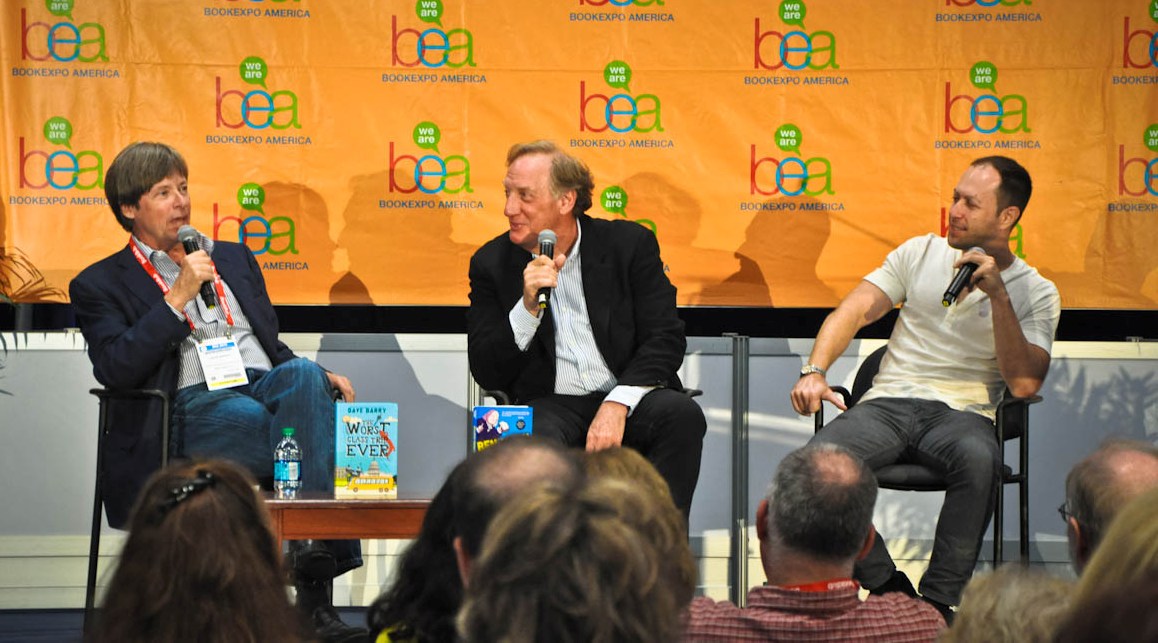
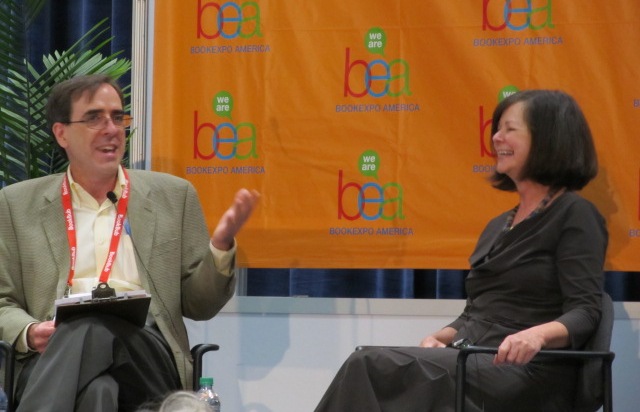
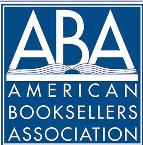 The American Booksellers Association's annual meeting yesterday consisted mainly of reports by ABA leaders that held much good news about the continued resurgence in independent bookselling--although everyone was sad that outgoing president Steve Bercu of Bookpeople, Austin, Tex., was marking the end of his tenure on the board. Bercu earned at least three rounds of applause from members in appreciation of what CEO Oren Teicher called his "leadership, humor and keen insight."
The American Booksellers Association's annual meeting yesterday consisted mainly of reports by ABA leaders that held much good news about the continued resurgence in independent bookselling--although everyone was sad that outgoing president Steve Bercu of Bookpeople, Austin, Tex., was marking the end of his tenure on the board. Bercu earned at least three rounds of applause from members in appreciation of what CEO Oren Teicher called his "leadership, humor and keen insight."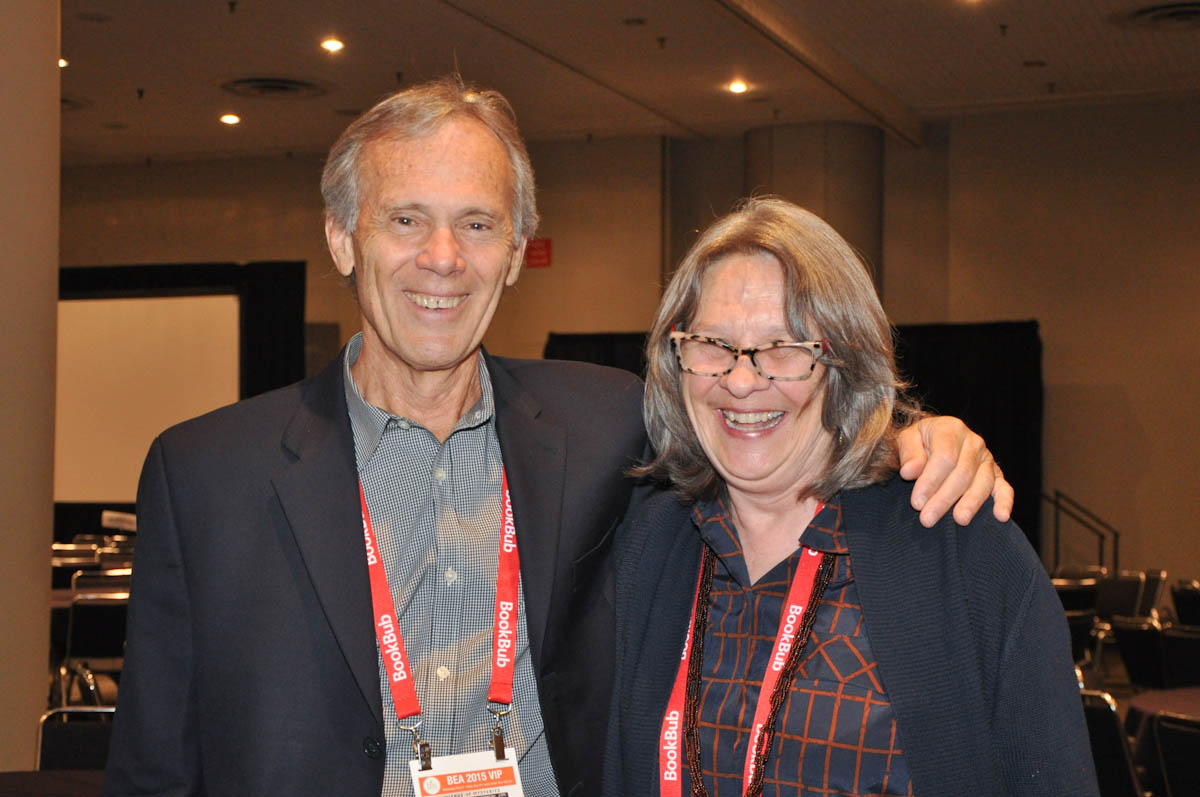
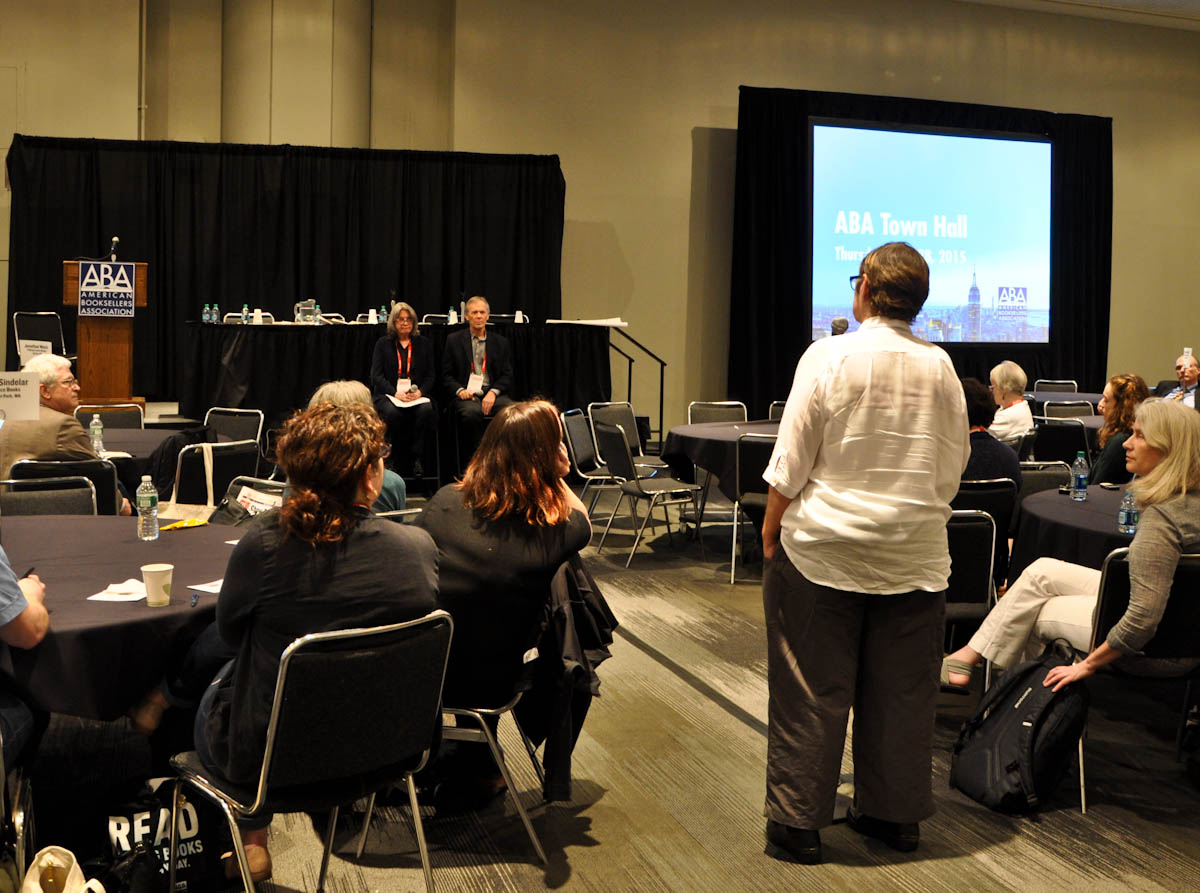
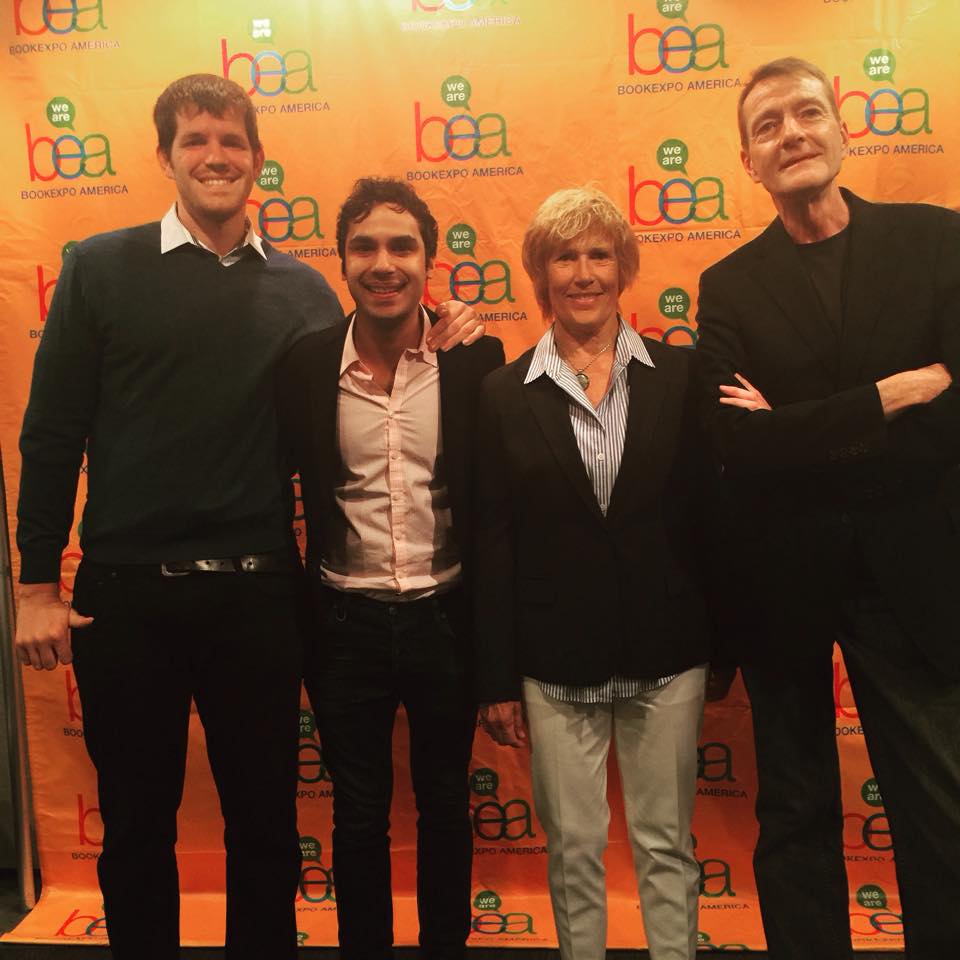
 "
"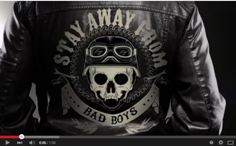 Nowhere but Here
Nowhere but Here
 Book you're an evangelist for:
Book you're an evangelist for: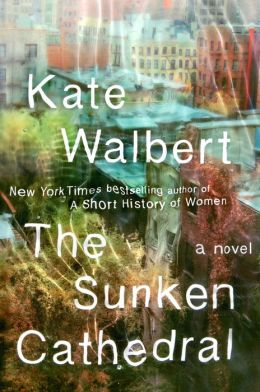 Against a background of ominous "sudden weather" and warnings to "shelter in place," the characters of Kate Walbert's The Sunken Cathedral play out their complicated lives in New York City's ever more expensive Chelsea neighborhood. At the center of Walbert's (A Short History of Women; Our Kind) story are lifelong friends and octogenarians Marie and Simone, haunted by nightmares of their escapes during the Nazi invasion of France. They manage on their own as best they can: their bodies are failing ("Dry skin. Terrible. You turn to dust before you turn to dust."), their children are scattered about the world, their husbands are vivid memories, and their storekeeper neighbors are replaced by pampered movie stars, their big brownstones now broken up for rental income. On a whim they sign up for a figurative art class taught by curmudgeonly Sid Morris, whose studio windows are painted shut--trapping radiator heat and his ubiquitous cigarette smoke--while upstairs a yoga center holds a meditation retreat. "Imagine sitting all day saying nothing," Marie says. To which Sid responds, "Death would be more interesting." The three become friendly. A little romance ensues. Then, in a New York sort of way, Simone is abruptly killed by a taxi at a dangerous pedestrian crossing at 9th Avenue and 23rd Street.
Against a background of ominous "sudden weather" and warnings to "shelter in place," the characters of Kate Walbert's The Sunken Cathedral play out their complicated lives in New York City's ever more expensive Chelsea neighborhood. At the center of Walbert's (A Short History of Women; Our Kind) story are lifelong friends and octogenarians Marie and Simone, haunted by nightmares of their escapes during the Nazi invasion of France. They manage on their own as best they can: their bodies are failing ("Dry skin. Terrible. You turn to dust before you turn to dust."), their children are scattered about the world, their husbands are vivid memories, and their storekeeper neighbors are replaced by pampered movie stars, their big brownstones now broken up for rental income. On a whim they sign up for a figurative art class taught by curmudgeonly Sid Morris, whose studio windows are painted shut--trapping radiator heat and his ubiquitous cigarette smoke--while upstairs a yoga center holds a meditation retreat. "Imagine sitting all day saying nothing," Marie says. To which Sid responds, "Death would be more interesting." The three become friendly. A little romance ensues. Then, in a New York sort of way, Simone is abruptly killed by a taxi at a dangerous pedestrian crossing at 9th Avenue and 23rd Street.